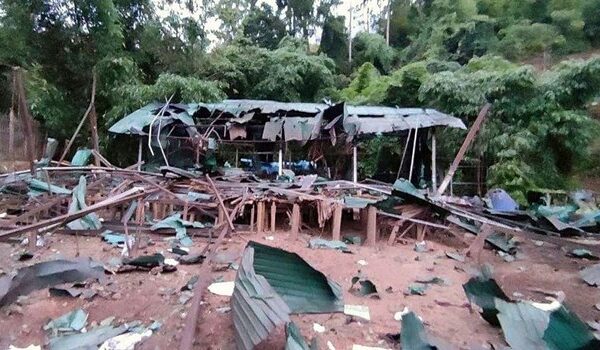
G20 spent a record $1.4 trillion on fossil fuels in 2022, report says
The world’s biggest economies, the G20, provided a record U.S.$1.4 trillion in public money for fossil fuels in 2022 despite the promise to reduce spending, a new study by a think tank said. “The 2022 energy price crisis, brought about by Russia’s invasion of Ukraine, has catapulted public financial support for fossil fuels to new levels,” said the International Institute for Sustainable Development, or IISD, in its analysis, Fanning the Flames, released on Wednesday. The amount is more than double the pre-pandemic and pre-energy crisis levels of 2019 and more than four times the annual average in the previous decade, the Canada-based organization said. When burned, fossil fuels emit harmful pollutants that contribute to global warming and intensify extreme weather events. They also contaminate the air with toxins, harming our respiratory systems and other vital organs and killing millions yearly. Of the funding, the largest share of $1 trillion was allocated as fossil fuel subsidies, while $322 billion was in the form of state-owned enterprise investments and an additional $50 billion as public financial institution loans. “While much of this was support for consumers, around one-third ($440 billion) was driving investment in new fossil fuel production,” the report said, adding such support “perpetuates the world’s reliance on fossil fuels, paving the way for yet more energy crises due to market volatility and geopolitical security risks.” “These figures are a stark reminder of the massive amounts of public money G20 governments continue to pour into fossil fuels – despite the increasingly devastating impacts of climate change,” said Tara Laan, a senior associate with the IISD and lead author of the study. The IISD said the increase in investment is against the expressed pledge in the 2015 Paris Agreement and such continued investments in fossil fuels greatly hinder the chances of meeting the climate targets, as they promote greenhouse gas emissions and diminish the cost-effectiveness of renewable energy. It said that G20 nations should redirect their financial investments from fossil fuels to targeted, sustainable support for social protection and the expansion of renewable energy. This aerial photo taken on Nov. 28, 2022 shows a cargo ship loaded with coal berthing at a port in Lianyungang, in China’s eastern Jiangsu province. Credit: AFP The report comes just ahead of the pivotal G20 leaders’ conference scheduled in New Delhi on Sept. 9-10, where discussions on climate change consensus are anticipated. The meeting could set the tone for the UN’s COP28 climate change conference in Dubai in November. The report lauded the achievement of G20 chair India as it reduced its fossil fuel subsidies by 76% from 2014 to 2022 while significantly increasing support for clean energy. The IISD urged G20 leaders to eliminate fossil fuel subsidies in developed nations by 2025 and in all other countries by 2030. The world leaders had agreed to phase out “inefficient” fossil fuel subsidies at the COP26 climate summit in Glasgow two years ago. “International public financing for fossil fuels has decreased in recent years but is still nearly four times greater than support for clean energy,” the report said, adding it came in the form of international aid, export credit support, and concessional financing, such as equity, grants, loans, and loan guarantees. China is among the top four largest providers of international public finance for fossil fuels in absolute dollar terms, providing $6.7 billion annually between 2019 and 2021. Japan provided $10.6 billion, while Canada provided $8.5 billion. South Korea came in third with a $7.3 billion investment. The most common fuels supported were oil and gas at 88%. The report also noted that G20 countries announced more than a quarter trillion dollars in subsidies for renewable power generation between 2020 and June 2023, with the United States, Germany and China leading the chart. “While positive, the renewable subsidies are dwarfed by subsidies for fossil fuels, which were over USD 1.4 trillion in the three years from 2020 to 2022,” the report said. The IISD also said while global investment in renewable energy reached a record high of $500 billion in 2022, it was still only around half of the investment in fossil fuels. Edited by Mike Firn and Taejun Kang.






